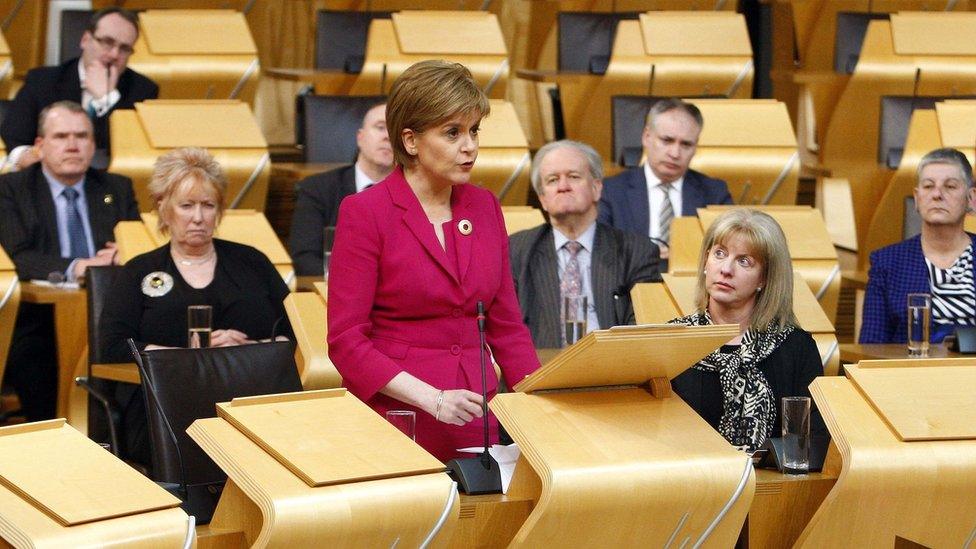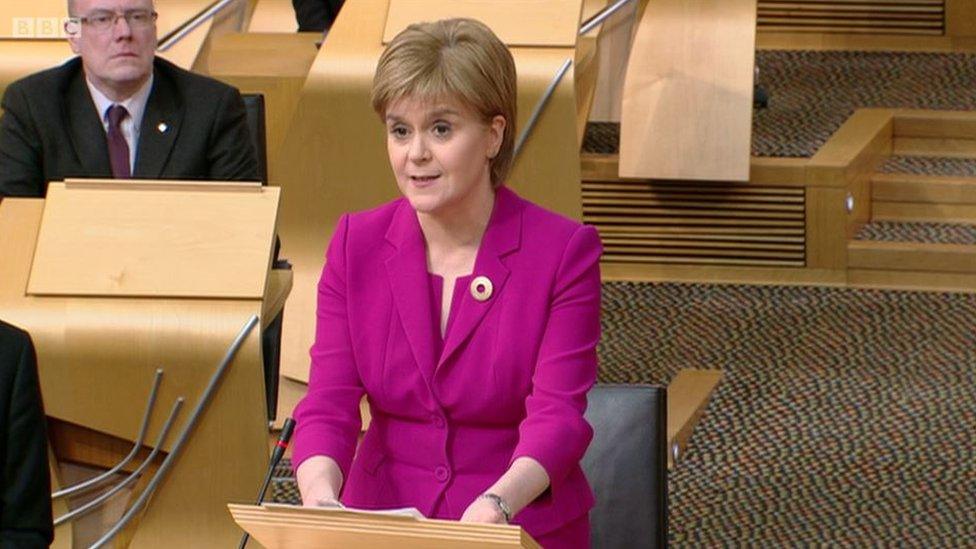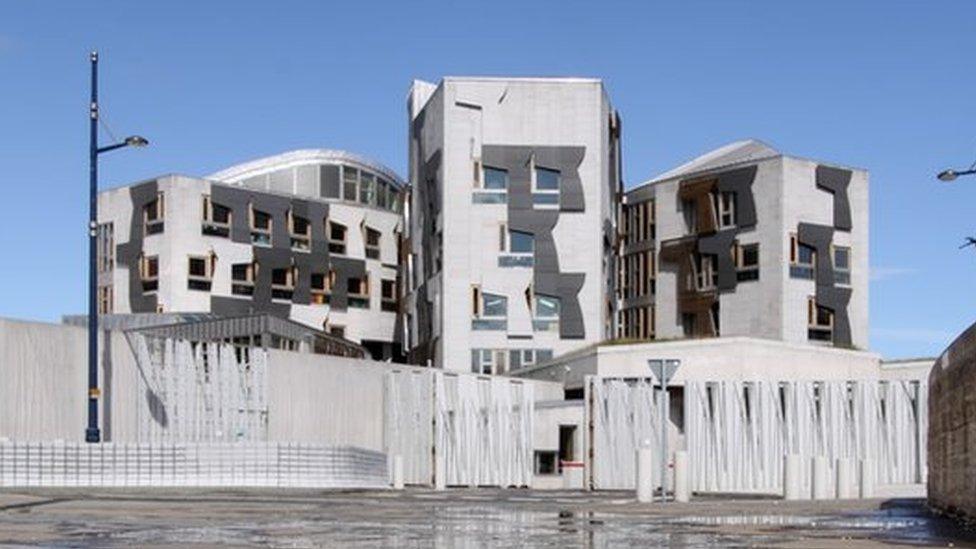Governments 'close' to a deal over devolution funding
- Published

A fresh deal hit the table even as Nicola Sturgeon prepared to address MSPs
Could we be inching towards a deal on the future of public spending in Scotland? It seems we might.
Certainly, things are moving apace. Indeed, even as Nicola Sturgeon was preparing to deliver a statement to update MSPs, a revised offer arrived from the Treasury.
Disclosure of same prompted excited speculation that a deal was concluded. This in itself prompted vigorous comments from the Scottish government side to the effect that nothing final was signed.
Still, the latest word from the Scottish government is that a deal is "close." The latest word from the UK government is that a deal is "very, very close". Make what you will of that.
Remember the issue here. We are talking about the plan to give Scotland control of all income tax rates and bands - plus borrowing powers and a share of welfare.
In return, the block grant from Westminster will be cut. But how to calculate that over the years ahead?
Deterring detriment
Enter the fiscal framework. And enter the insistence by the Scottish government that there must be "no detriment" to either side purely as a consequence of the devolution of powers.
To be clear, using those powers is another matter. If the Scottish government makes a wise or daft decision re: tax, it gains the benefit or takes the hit accordingly.
As I mentioned on the wireless this morning, the Treasury has moved by offering no detriment over a period of five years, followed by a review.
The Scottish government says yes - but not to the notion that, after five years, matters would automatically revert to the proposed Treasury model which, say Scottish ministers, would cut some £2.5bn from the Scottish budget over a decade.
Which is where we are as I write. Awaiting a revision of that review proposal.
Stand by for more.
- Published23 February 2016

- Published22 February 2016
